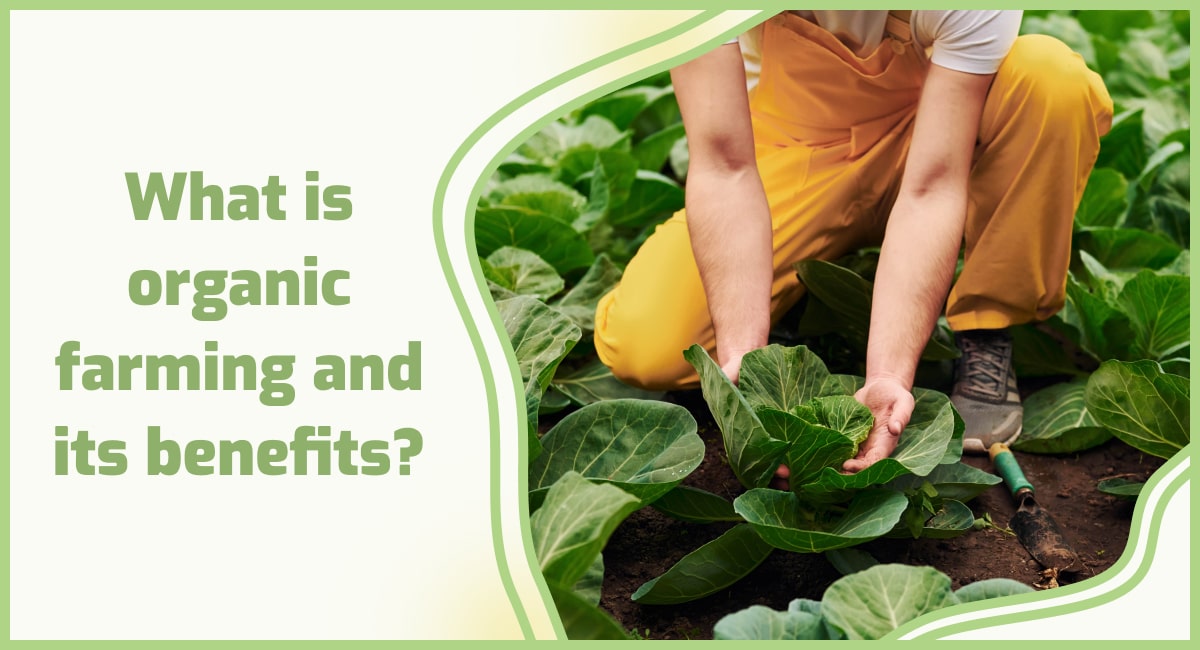The Benefits of Organic Farming
Organic farming is an agricultural practice that focuses on cultivating crops and rearing livestock using natural methods and without the use of synthetic chemicals or genetically modified organisms (GMOs). This article aims to highlight the numerous benefits of organic farming and why it is gaining popularity among farmers and consumers alike.
Enhanced Soil Quality
One of the key advantages of organic farming is its ability to improve soil quality. Organic farmers prioritize the use of compost, animal manure, and other natural fertilizers to enrich the soil with essential nutrients. This leads to increased soil fertility, enhanced water retention capacity, and improved microbial activity, resulting in healthier and more productive farmland.
Reduced Environmental Impact
Unlike conventional farming methods, organic farming practices are designed to minimize the negative impact on the environment. By avoiding the use of synthetic pesticides and fertilizers, organic farmers prevent the contamination of soil, water, and air. Additionally, organic farming promotes biodiversity by providing habitats for various beneficial insects, birds, and other wildlife, contributing to a more sustainable ecosystem.
Healthier Food
Consuming organic food products has become increasingly popular due to their perceived health benefits. Organic farming prohibits the use of synthetic pesticides and GMOs, which are often a concern for consumers. Organic fruits, vegetables, and animal products are grown or raised without the use of antibiotics, growth hormones, or other artificial additives. This results in food that is free from potentially harmful residues and may contain higher levels of beneficial nutrients.
Supporting Local Communities
Organic farming often involves smaller-scale, local operations. By choosing organic products, consumers can support local farmers and their communities. This not only helps to strengthen the local economy but also promotes sustainable agricultural practices, which have long-term benefits for both the environment and public health.
Economic Viability
Contrary to the misconception that organic farming is not economically viable, it has been proven that organic farms can be just as profitable as conventional ones. While organic farming may require more labor and initial investment, it offers opportunities for niche markets and higher prices for organic products. Moreover, organic farming reduces reliance on expensive synthetic inputs, making it a financially sustainable choice for farmers in the long run.

Organic farming offers a multitude of benefits, ranging from improved soil quality and reduced environmental impact to healthier food options and support for local communities. By choosing organic products and supporting organic farmers, individuals can contribute to a more sustainable and eco-friendly future. Embracing organic farming practices not only benefits the environment but also enhances the overall well-being of both farmers and consumers.
Frequently Asked Questions about the Benefits of Organic Farming
1. What is organic farming?
Organic farming is a method of agriculture that relies on natural and sustainable practices, avoiding the use of synthetic chemicals, pesticides, and genetically modified organisms (GMOs).
2. What are the benefits of organic farming?
Organic farming has numerous benefits, including:
Reduced exposure to harmful chemicals
Improved soil health and fertility
Preservation of biodiversity
Enhanced nutritional value of crops
Support for local ecosystems
Reduced water pollution
Protection of wildlife
Lower carbon footprint
Support for sustainable agriculture
Healthier food options
3. Is organic farming more environmentally friendly?
Yes, organic farming is considered more environmentally friendly compared to conventional farming methods. It promotes sustainable practices, reduces pollution, and helps preserve natural resources.
4. Does organic farming use pesticides?
While organic farming avoids synthetic pesticides, it does allow the use of naturally derived pesticides that are approved for organic use. These pesticides are generally less harmful to the environment and human health.
5. Are organic foods more nutritious?
Several studies suggest that organic foods can have higher nutritional value compared to conventionally grown foods. They may contain more vitamins, minerals, and antioxidants due to the healthier soil conditions and the absence of synthetic fertilizers.
6. Can organic farming help combat climate change?
Yes, organic farming practices such as crop rotation, composting, and the avoidance of synthetic fertilizers can help sequester carbon in the soil, reducing greenhouse gas emissions and contributing to climate change mitigation.
7. Does organic farming support biodiversity?
Yes, organic farming methods help preserve biodiversity by avoiding the use of genetically modified crops, synthetic pesticides, and chemical fertilizers. This allows for a healthier ecosystem and supports the habitats of various wildlife species.
8. Are organic farming practices regulated?
Yes, organic farming practices are regulated by various certification bodies in different countries. These organizations set standards and guidelines to ensure that organic farmers follow specific practices and meet the required criteria to label their products as organic.
9. Are organic farming methods more expensive?
Organic farming can be more expensive initially due to higher labor costs and lower economies of scale. However, in the long run, organic farming can be economically viable as it reduces the dependence on external inputs and promotes sustainable farming practices.
10. Where can I buy organic produce?
You can find organic produce in various places, including local farmers’ markets, organic food stores, community-supported agriculture (CSA) programs, and some conventional grocery stores that have dedicated organic sections.




